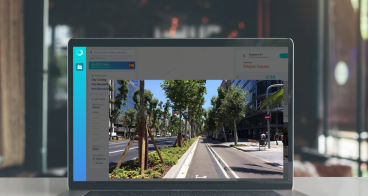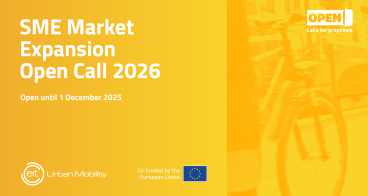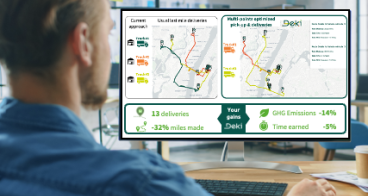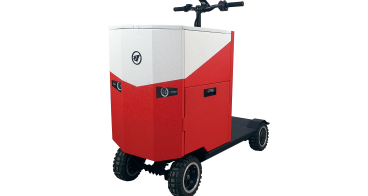Electric cargo scooter for park and city maintenance in Riga, Latvia
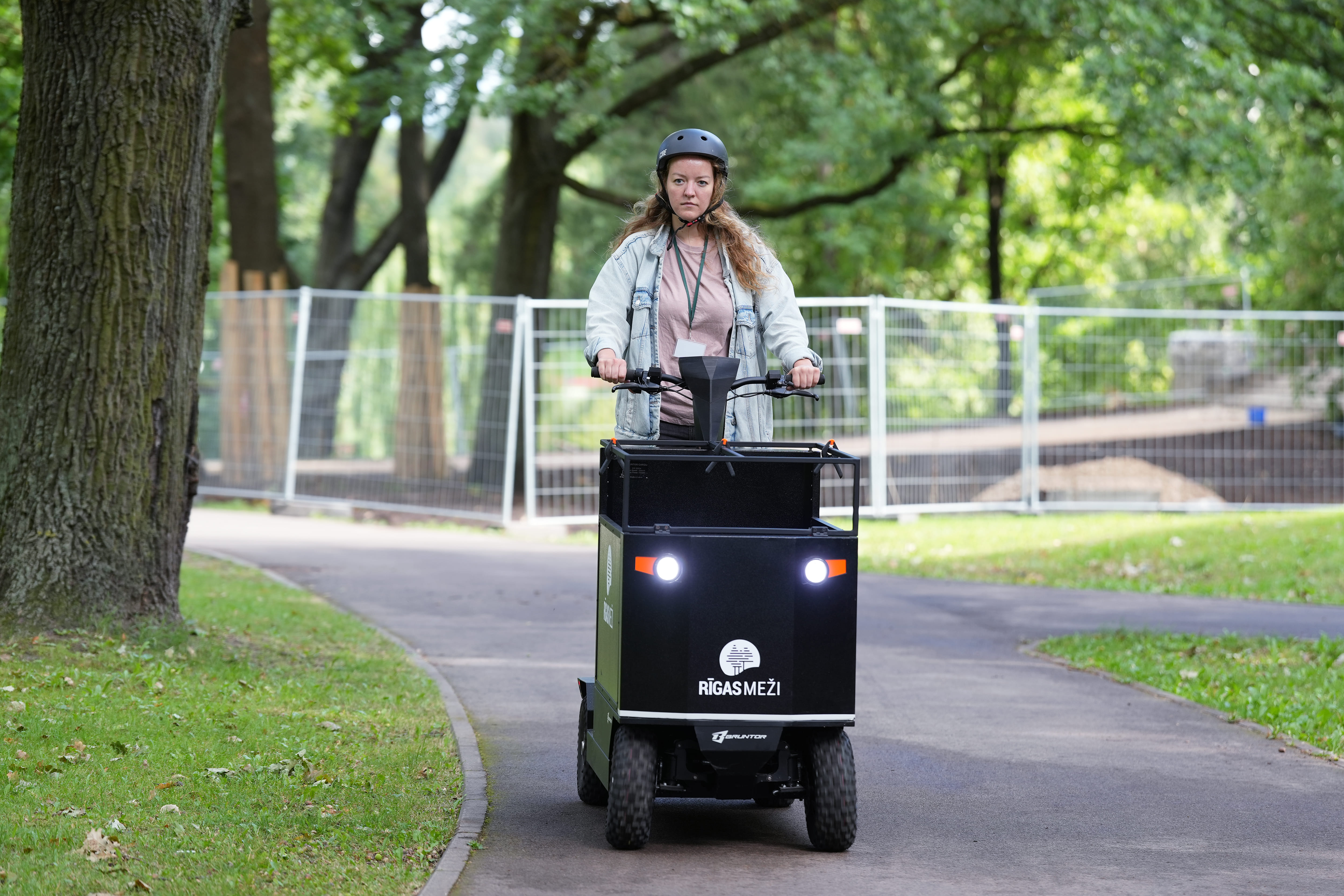
The Challenge
Municipal maintenance teams of Riga City Council and Riga Forests faced growing challenges in maintaining large green areas, forest parks, and urban infrastructure — especially in areas inaccessible to traditional vans or utility vehicles. Key problems included:
- Limited vehicle access to narrow park paths and pedestrian-only zones.
- Inefficient deployment of large vehicles for small maintenance tasks.
- High noise and emissions, disrupting nature and park visitors.
- Labor-intensive operations, requiring staff to walk long distances with tools and materials.
With over 2,200 hectares of green space under care, Riga Forests and Riga City Council sought a more mobile, silent, and emission-free solution that would reduce strain on workers, cut environmental impact, and improve efficiency in daily tasks.
The Solution
Bruntor Cargo, a compact, 4-wheel electric cargo scooter, was deployed to address urban mobility challenges in park and city infrastructure maintenance. Its design makes it perfect for navigating tight urban spaces. Key features include:
- High maneuverability: Its small size allows access to narrow streets and pedestrian-only zones, where larger vehicles can't go.
- Customisable cargo box: The vehicle’s cargo box can be adjusted for various tasks, such as transporting tools, waste bags, equipment, or plants, making it versatile for different maintenance activities.
- Electric drive: Bruntor is zero-emission and silent, ideal for park and residential areas where noise and pollution are concerns.
- Fast onboarding: The stand-up riding format means that staff can quickly learn to use the vehicle, enhancing productivity with faster task-switching and efficient stop-start operations.
- Open Box model: Clients like Riga Forests can define their specific use cases (e.g., tool transport or waste collection), and Bruntor will customise the cargo module to fit, ensuring the vehicle meets all operational needs.
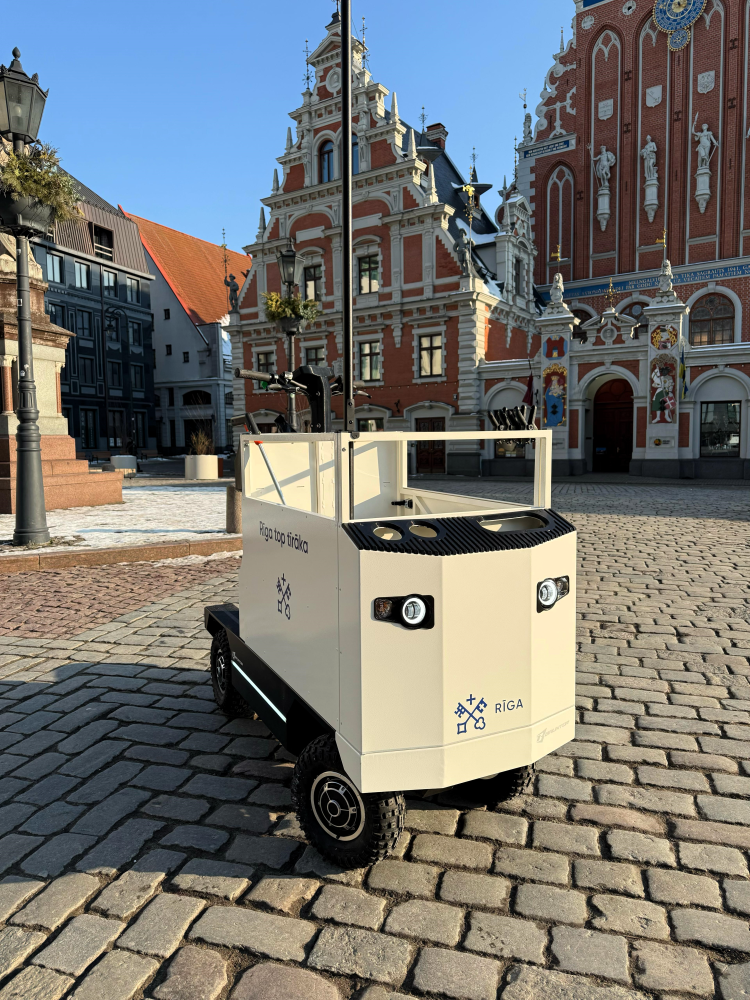
Making an impact
The introduction of Bruntor vehicles for Riga Forests and Riga City Council has delivered significant operational, environmental, and social benefits:
- Tasks are now completed 2-3 times faster in areas with multiple short stops, dramatically increasing operational efficiency.
- Cut emissions and noise, contributing to a more enjoyable and sustainable park experience for citizens.
- Lowered worker fatigue, eliminating the need for employees to walk long distances while carrying heavy tools.
- Reduced operational costs compared to the use of vans or conventional utility carts, offering a more cost-effective solution.
- Proven reliability: Bruntor vehicles have successfully driven over 2000+ km in test environments, proving their durability and suitability for rigorous use.
“Bruntor has proven to be a practical and adaptable vehicle for maintaining green spaces in tight or sensitive areas where traditional transport options are either inefficient or impractical.” — Riga Forests Operations Manager
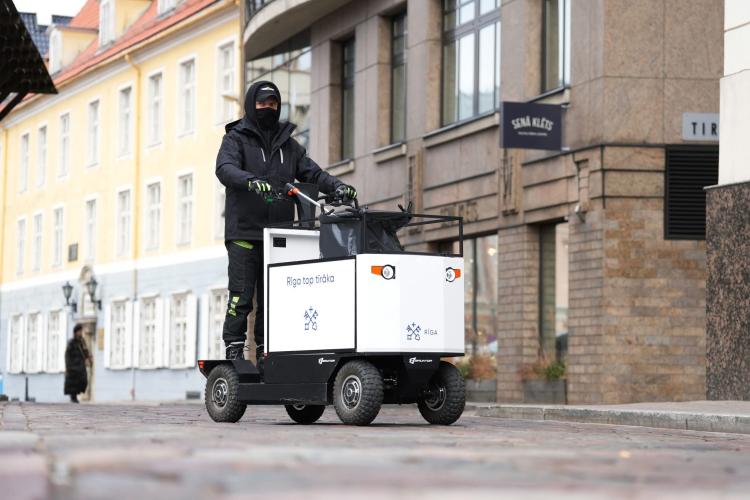
Lessons learnt
Challenges faced during deployment:
- Regulations don’t always align with new innovations. In Latvia and across Europe, existing rules for mobility tech like e-scooters or e-bikes don’t cover Bruntor vehicles, making it difficult to test and use in public spaces.
- Special permissions take time and resources. Since Bruntor didn’t fit existing categories, special permissions were required to test it in public areas. This process was slow and resource-intensive, delaying deployment.
- Users were ready, but regulations held them back. After a successful pilot and enthusiasm from users, regulatory barriers prevented continued use until the necessary permissions were granted.
What made it work:
- End users stepped up in the conversation. Maintenance staff and city officials worked with us to engage regulators, pushing for the necessary approvals.
- Close collaboration with end users. We worked closely with staff to adjust the vehicle’s design, ensuring it met their needs and increased adoption.
- Customisable cargo space. The Open Box model allowed us to adapt the vehicle for various tasks, such as landscaping or waste collection, making it versatile.
- Compact design. Bruntor’s small size allowed it to access tight areas, demonstrating its value where larger vehicles couldn’t go.
Bruntor's success in Riga demonstrates how small-scale, adaptable innovations can make a measurable difference in daily city operations — especially when public-private collaboration is prioritised from the start.



